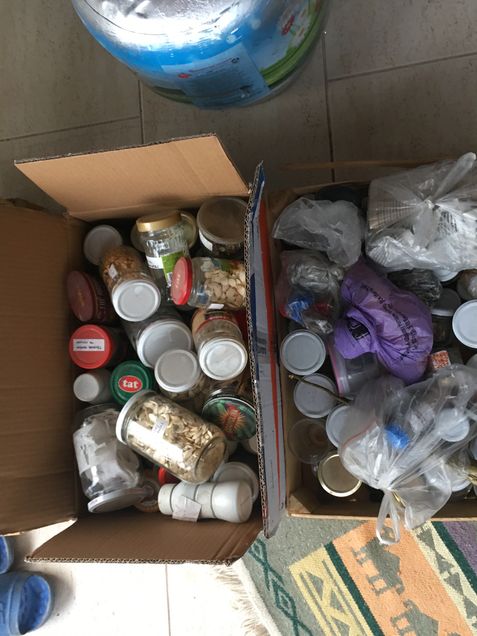Germinating Family Seeds in the Mediterranean
BU Environmental Anthropologist Caterina Scaramelli’s Research Digs into the Roots of Family Seed Keeping
BU Environmental Anthropologist Caterina Scaramelli’s Research Digs into the Roots of Family Seed Keeping
Caterina Scaramelli’s childhood move from a lakeside town surrounded by mountains to a bustling cityscape incited her fascination with the natural environment’s effect on a region’s culture. She witnessed both incredible differences and striking connections between the rural and urban landscapes during her frequent visits back to her hometown, and her exposure to the varying landforms harnessed her curiosity for how her community’s culture was shaped around the terrain.

As an anthropologist, she has studied rivers, wetlands, marshes, urban water systems, and agricultural irrigation, looking at the connections between everyday life, work, knowledge, and politics in unstable environments.
Now Scaramelli, a senior lecturer in the departments of Earth & Environment and Anthropology, has turned to practices of cultivation and seed-saving, examining how the preservation of local varieties of crops in the Mediterranean — including tomatoes, pumpkins, and other fruits and vegetables — affect families and communities.
“Local seeds act as powerful living markers of place, history, and social relations,” says Scaramelli, whose work sits at the juncture of anthropology and environmental sciences. “For populations displaced by large-scale infrastructure, poverty, or war, seeds are particularly powerful markers of memory, community, and resilience.”

Scaramelli’s newest project, “What Seeds Carry: Sprouting, Keeping & Exchanging Locality in Turkey,” uses interviews, observations, and archival research to document the cultural significance of seeds in Turkey. The research, which was awarded the Post Ph.D. Research Grant by the Wenner-Gren Foundation, asserts that contemporary Turkish cultures, including those of migrant and diasporic communities, and of urban dwellers is deeply rooted in the keeping and trade of seed varieties that have been passed down through a family, exchanged with kins and neighbors, and sometimes acquired from places further away.
This is visible, she says, through local farmers’ response to the agricultural policies and regulations. Since 2006, in an effort to standardize how seeds are produced and traded, the Turkish government has prohibited farmers who are selling non registered seed varieties on the public market. To circumvent the law, farmers have been exchanging seeds at local festivals organized by municipalities and farmers’ cooperatives. In addition, farmers, municipalities, and activists, as well as consumers have been advancing new claims about the cultural, political, and ecological value of seeds.

“In Turkey, there’s been this diverse and emergent interest in protecting these unregistered seed varieties as they vanish from the market,” Scaramelli said. “The cultural value of heirloom seeds for many cultivators in Turkey, is not that they necessarily anchor people and seeds in place, but mostly they signal social connections, embeddedness, and a sense of belonging.”
Scaramelli said she feels that her role is to show the centrality of seed practices to the experience of precarious labor, rising authoritarianism, and ecological displacement.
She said her grandfather had shown her how to grow vegetables in her youth, a skill she has strengthened during field research in Turkey on wetland conservation and by planting her own garden in Boston. “Social and family histories have been embedded in me,” Scaramelli said. “It’s like an extension of personhood through the plant, but it preserves mobility and change.”